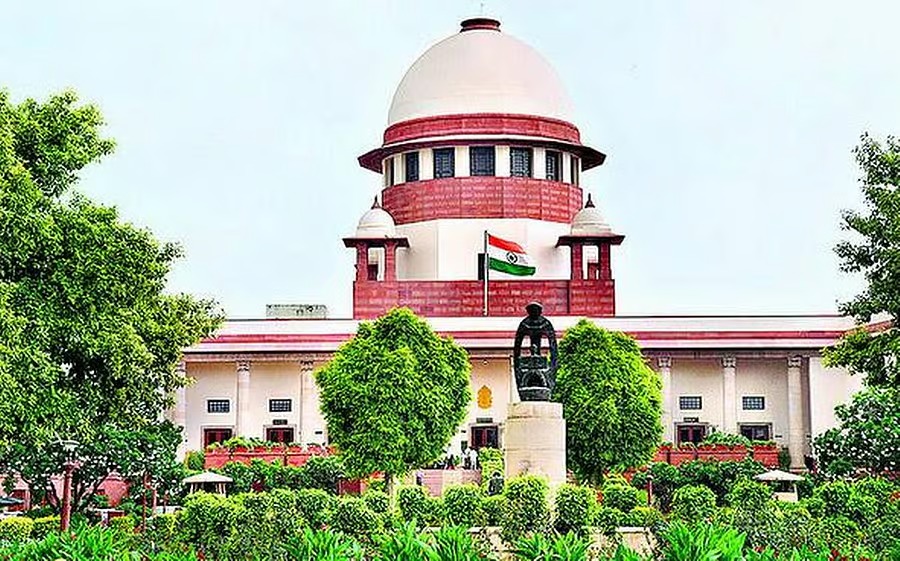Abani Mohan Sinha, J.@mdashThis Revisional application is directed against the judgment and order passed by the Competent Authority of the Metro Railway in Claim Case No. 2 of 1985. The Petitioners are the lessees of premises No. 102, Shyama Prasad Mukherjee Road and are also the owners of a Cinema known as ''Basusree''. The Respondent No. 2, the Metro Railways Administration proceeded with the construction of underground Railway system underneath the stretch of a portion of street in front of ''Basusree Cinema''. It is alleged that due to careless and negligent act of construction by the Respondent/opposite parly No. 2, the Petitioners suffered damages in their cinema -buildings where cracks on the walls, floors and stairs were caused and the foundation was made to sink, the mural paintings inside the auditorium were also damaged. Accordingly, the Petitioners made a claim of Rs. 2,21,000 before the opposite party No. 2 by filing a written application. In the said Claim Case, in the presence of the opposite party No. 2 on the prayer of both the parties, i.e. the Petitioners and the opposite party, a joint inspection was ordered by the Competent Authority. On submission of the report of the joint inspection before the Competent Authority, the Petitioners inspected the same. They were allowed to file revised estimates of the damages by the Competent Authority. The opposite party/Respondent No. 2 filed a written objection to such estimates. The Petitioners filed an application before the Competent Authority for amendment of their petition of claim in terms of the revised estimates. The Competent Authority, however, by order No. 5 dated March 14, 1990, rejected the application for amendment of the claim petition. Being aggrieved by and dissatisfied with the judgment and order of the Competent Authority, the Petitioners have moved in Revision.
2. Mr. Tarun Chatterjee, the learned Counsel being duly assisted by Mr. N. Chatterjee representing the Petitioners, has submitted that the judgment and order of the Competent Authority cannot be sustained in fact and in law. Mr. Ashim Kr. Ghosh and Mr. Prabhat Kr. Mukherjee representing the opposite party Nos. 1 and 2 respectively on the other hand contend that under the scheme of Metro Railways (Construction of Works) Act, 1978, the Competent Authority is not empowered to effect the amendment of the claim petition. It has further been urged that the jurisdiction of the Competent Authority is purely discretionary and no Revision would lie against the order by which he refused to exercise discretion in favour of the Petitioners.
3. Mr. Chatterjee has drawn our attention to Section 15 of the Metro Railways (Construction of Works) Act, 1978 (shortly to be called the Act hereinafter). It says that the Competent Authority shall have, for the purposes of this Act, all the powers of a civil Court while trying a suit under the Code of Civil Procedure, 1908. Some items, for example, have been listed as (a) to (e), These items are for summoning and enforcing the attendance, examination of witness, requiring the discovery and production of documents, reception of evidence on affidavits, requisitioning any public record etc. and issuing commission for examination of witnesses. In our view, these items are set out by of example. The power of the Competent Authority is not confined to these Items only. The section clearly says that the Competent Authority shall have all the powers of the civil Court while trying a suit under the Code of Civil Procedure.
4. The CPC makes elaborate provisions for institution, hearing and disposal of suits. One of such procedures is provided in Order 6 and the rules framed thereunder. The provisions contained in Order 6 relate to procedure of drawing up plaint, forms of pleading and particulars which the plaint of a suit will contain. Rule 17 of Order 6 of the Code lays down that the Court may at any Stage of the proceeding allowing either party to alter or amend its pleading in such manner and on such terms as may be just and all such amendment shall be made as may be necessary for the purpose of determining the real questions in controversy between the parties. So, it will be seen that a civil Court has the power to allow the amendment of plaint at any stage for the ends of justice and for determining the real questions of controversy between the parties. If such power is vested in the Competent Authority u/s 15 of the Metro Railway Act there is no point in saying that the Competent Authority has jurisdiction to allow that amendment of the petition of claim. It has the same power of a civil Court in dealing with a suit. Further, Section 15A of the Act gives power to inspect any property under acquisition. Such power can be exercised by the Competent Authority on its own or on the application of the party. The Competent Authority can, conduct inspection on its own or cause the inspection to be done by other. In the present case the joint inspection was allowed by the predecessor of the Competent Authority who tried the Claim Case No. 2 of 1985. In our view, the Competent Authority was not justified in examining the orders passed by his predecessor or criticising the same in the manner he had done. It seems that he was conscious that he could not sit in appeal over the orders of his predecessors. Yet he proceeded to scan it and criticise it and consider the competency of such order. Be that as it may, his reasoning for not allowing the amendment cannot be justified as the Competent Authority has all the power of civil Court in dealing with suit under the Code of Civil Procedure. The prayer for amendment can also be allowed by him. He has full jurisdiction to deal with such matter.
5. So, in our view, the impugned order of Competent Authority cannot be sustained in law and in fact. The order is set aside. The Competent Authority shall consider the application for amendment as he has jurisdiction to do the same. In considering such application he should follow the rules of the CPC which deals with amendment of pleading, i.e. Rule 17 of Order 6.
6. As a result, this Revisional application is allowed but no cost is assessed for the same.
7. Let the records be sent down to the Competent Authority without any further delay.
S. Ahmed J.
8. I agree.

